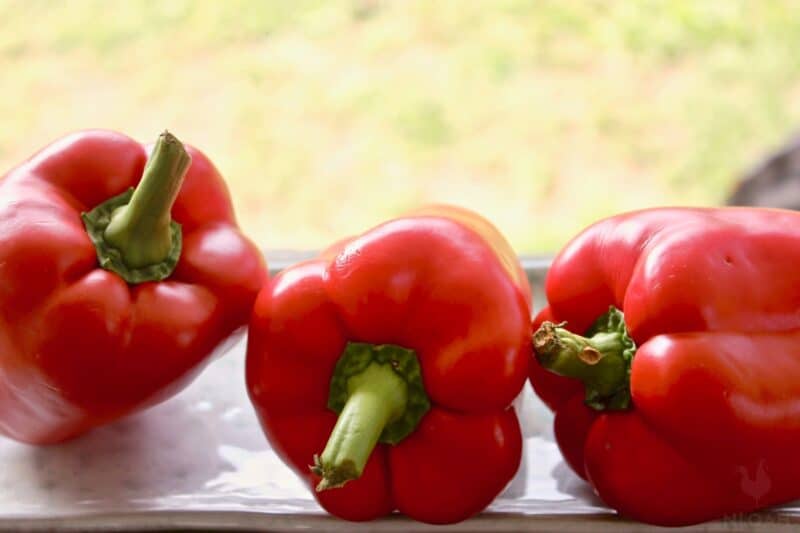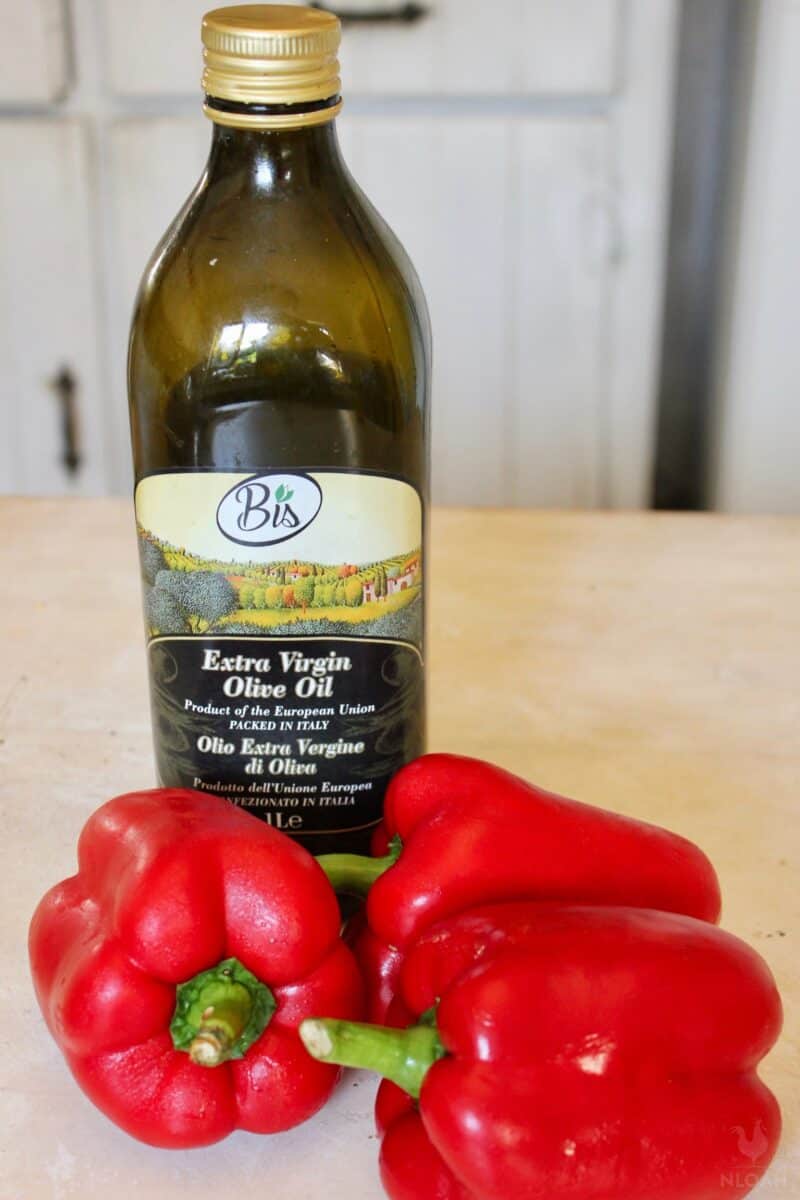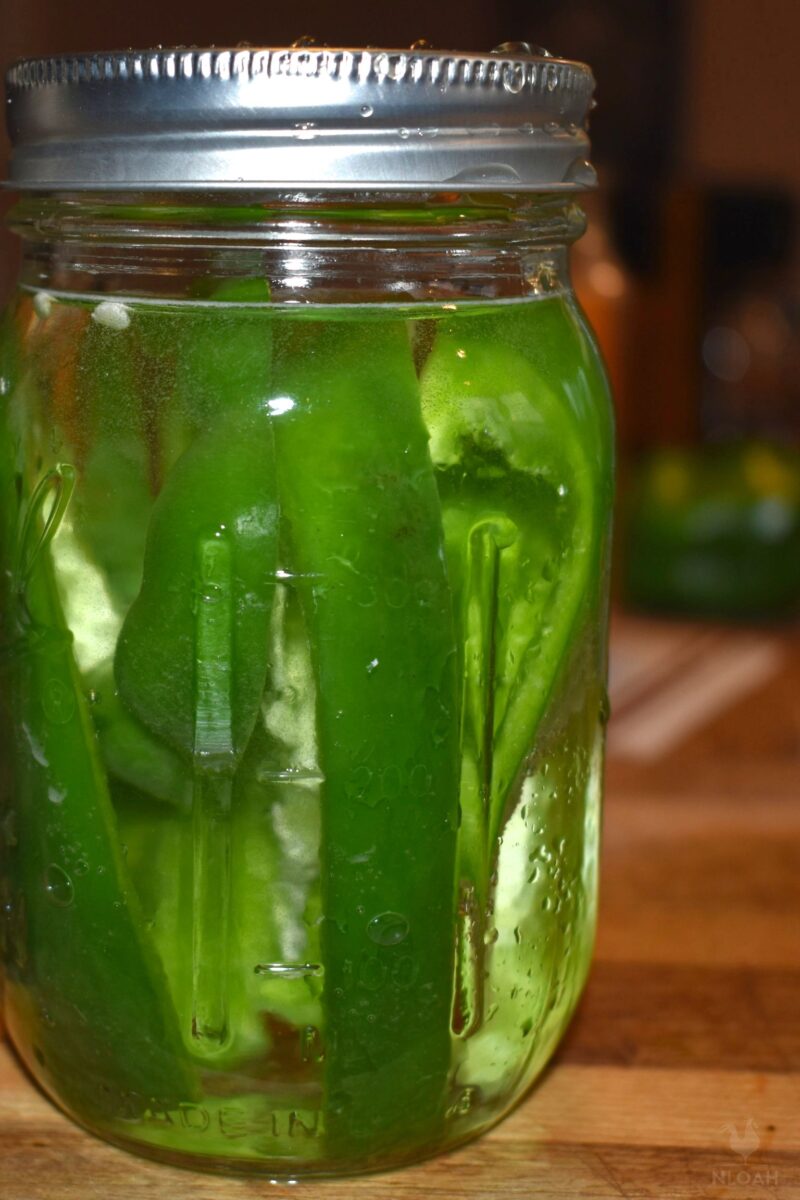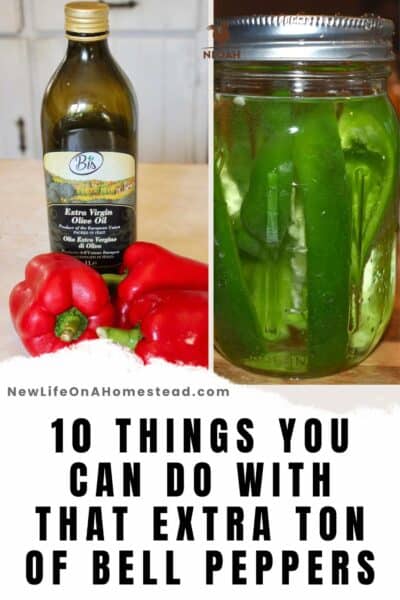Every gardener and farmer I know works ceaselessly to bring in a good harvest, whatever it is they are growing.

And for those of us who grow peppers, much of the time we feel the bitter sting of failure when some of them just fail to come in. It’s just the way it is, as peppers are one of the most temperamental and sensitive veggies you can grow.
But, every now and then, sometimes everything goes right, and you’re rewarded with a big bumper crop. You might even say they’ve gone too right!
If you’ve wound up with more bell peppers than you could possibly hope to eat or use in recipes, you’ve got to come up with some alternate ways to deal with them, and fast: they won’t stay fresh forever!
Luckily, I am here to help. Keep reading and I’ll tell you about 10 things you can do with those extra bell peppers that you might have on hand.
Stuff ‘Em
Stuffed peppers are one of my very favorite dishes, and are a meal unto themselves. This is also one of the most popular recipes that use peppers as a centerpiece, not as an ingredient or as a side dish.
This is another place to really stretch your legs as a home chef, and they are great stuffed with ground beef, venison, chicken, turkey, or even other veggies and they pair wonderfully with lots of different flavor profiles.
If you have spice and seasoning mixtures or fresh herbs you’ve been dying to put to use in a new way, stuffed peppers will help you do that.
They’re also quick and easy to make, meaning this is a dinner you can put on the menu as soon as you bring your harvest in.
Top Pizzas
Peppers are just about the perfect accent topping for pizzas, adding a crisp burst of vegetative flavor that helps cut through the incredibly savory richness of various meats and of course tons of cheese. And also helps bring out the best notes of the sauce!
You can pop some sliced peppers on your pizza raw or after lightly grilling them to remove a little more moisture.
Sometimes putting them on a thin-crust pizza raw will result in a softer crust because of all the moisture escaping them during the baking process.
If you’re set for a family pizza night, or having a pie a couple nights a week, pre-grill your peppers and keep them in the fridge; they last for at least 5 days.
Eat with Dip
Don’t forget that your fresh, perfect bell peppers are absolutely delicious all by themselves as a snack or with a dip or other topping.
They definitely deserve a place right by the carrots and celery on a snack tray with hummus, spinach, and artichoke dip, veggie spread, or anything else. Just wash them and slice them when you’re ready to serve.
Roast
Roasting peppers is another great way to make them delicious as a side dish, topping, or ingredient for other things. You can also roast your peppers and then freeze them or can them to extend their shelf life, so it’s always a good decision as a first step if you have a large surplus.
A little salt and pepper, olive oil, a baking sheet, and a screaming hot oven are all you’ll need to turn out perfectly tender roasted bell peppers at home. Cut them in half, remove the seeds and stems, drizzle with oil and seasonings, and then roast at 475°F for about 45 minutes. That’s it!

Smoke
Smoked peppers are wonderfully flavorful and delicious, and if you spend a lot of time at the smoker anyway or you have a big barbecue gathering coming up, this is the perfect accompaniment and something that you and your guests probably haven’t had before.
Smoked peppers are extra sweet and tender, and they go well with anything that you might be serving.
Best of all, even the largest bell peppers smoke pretty quickly, rarely taking longer than three to three and a half hours, but you can slice or quarter them to speed things up. As always, different kinds of wood will yield different, nuanced flavors.
Just make sure you turn the peppers every half hour or so during smoking and they’ll turn out great.
Pickle
Far and away one of my favorite ways to preserve a bounty of peppers is by pickling them. There is just something about pickled peppers that always makes me happy. They’re still a little crispy, perfectly salty, and briny, and packed with flavor.
Best of all, you’ve got options here: you can pickle them as pieces, slices, rings, quarters, or even whole.
You have a lot of opportunities to experiment with flavor, too, depending on your choice of brine and also additional spices like garlic, pepper, mustard seed, dill, and more.
If you’ve never had pickled peppers you’re missing out, so I can’t recommend this option enough!

Can
Peppers are great when they’re canned! If you’ve ever had sweet peppers from a grocery store before, the kind that comes in a jar, you’ve had canned peppers.
They work wonderfully in all kinds of recipes and are excellent as toppings on various dishes like chili, sandwiches, and more.
Plus, if you can a big batch, you’ll have friends and family fighting you to get them and then they can take those peppers off your hands!
Bell peppers are best canned after being roasted under your broiler and then having the skin and seeds removed. You’ll need a pressure canner because they are a low-acid food.
Once you can them, you can open them up and eat them as-is or, what I like to do, blend them together with other veggies to make a delicious spread!
Ferment
Fermenting peppers is more commonly associated with hot varieties rather than bell peppers, but you can do the exact same thing with sweet bells to balance out a hot sauce recipe or other condiment, keeping the tasty flavor but cutting down on the concentration of tongue-searing capsaicin.
Fermentation is similar but distinct from pickling, and although I’m not going to go into the whole process here it requires little more than correct preparation, the right brine, and a jar that is specially set up to promote the fermentation process.
After about a week, perhaps a little longer, your brine should turn cloudy and you’ll have a batch of tangy, tasty fermented peppers that are ready to go into the food processor along with some of the brine to make a wonderful sauce base.
Dehydrate
Peppers also dehydrate quite well, and this is another wonderful way to preserve a massive harvest with very, very little loss in quality for future preparation.
If you have an at-home food dehydrator, now’s the time to use it but you can do a great job with nothing but your oven and the right preparation.
Make sure your peppers are completely clean and totally dry, then slice them into quarters, removing the stems, seeds, seed pods, and membranes prior to loading them in the dehydrator or oven.
Follow the instructions that came with your dehydrator, or keep them in a single widely spaced layer on a baking sheet at 150°F for at least 12 hours in the oven. Larger pieces or halves might take a couple of days!
They will darken as they dehydrate, but this is normal. Your dehydrated bell peppers will last at least a year if you keep them in an airtight container or jar.
Freeze
If you’ve got a lot of peppers yet to use, and you don’t want to eat them in the near future, give them away or just throw them out, don’t hesitate to freeze them. Pretty much all peppers, and that includes bell peppers, freeze really nicely when properly prepared.
All you need to do is cut off the stems and remove the inner seeds, seed pod and any membranes from the flesh then cut them into strips or small cubes.
Place those pieces on a tray, separated, and then freeze them until they are totally solid. After that transfer to a zipper storage bag or other freezer-safe container.
You should get at least a year of good storage out of them. If you kept them Frozen for a long time, check for freezer burn before you use them.

Tom has lived and worked on farms and homesteads from the Carolinas to Kentucky and beyond. He is passionate about helping people prepare for tough times by embracing lifestyles of self-sufficiency.
